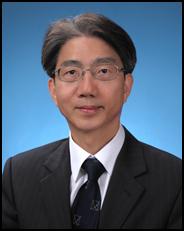Design Review for Tai Po River by Advanced Hydraulic Modelling

Professor LEE Hun-wei, Joseph (HKUST)
Abstract
On 22 July 2010, an unprecedented debris flood occurred in Sha Po Tsai Village in the upper Tai Po River (UTPR) which resulted in one casualty and considerable damages to the vicinity. Based on the recommendation of an independent investigation report, a review of the design of the drainage improvement works for the river was carried out to enhance the drainage design to further reduce flooding risks.
An initial computational fluid dynamics (CFD) study carried out by international consultants as part of an on-going project "River Improvement Works in Upper Lam Tsuen River, She Shan River and Upper Tai Po River" revealed exceedingly high velocities in the future UTPR after training. A number of stilling basins were proposed to reduce the flow velocity for better river bank protection. In the absence of design guidelines for energy dissipation structures in such moderately super-critical river flows, an experimental investigation was carried out in a schematic model of the river - to understand the complex hydraulic interactions, and to develop an optimum configuration of baffle blocks within a tight time frame. The flow behavior and drainage performance was studied with respect to the location and arrangement of drop structures and baffle blocks. The model study, which was also supplemented by independent theoretical work, led to several generic designs. Subsequently, a full detailed CFD study of the trained river using the recommended design was performed. In addition, a detailed physical model study was carried out to test the CFD results and to fine tune the final design.
In this talk, the key issues relating to the river training will be presented – including the need for physical experiments, design considerations for the CFD model and schematic physical model, the detailed physical model, and practical construction aspects. The limitations of existing design guidelines and CFD modeling for supercritical flows will be discussed.
About the Speaker
Prof Joseph Hun-wei Lee is currently the Vice-President for Research and Graduate Studies at the Hong Kong University of Science and Technology (HKUST). Before joining HKUST, Prof Lee taught at The University of Hong Kong (HKU) for 30 years (1980-2010). He was the Redmond Chair of Civil Engineering and Director of Croucher Laboratory of Environmental Hydraulics, and also served as Dean of Engineering (2000-2003), Pro-Vice-Chancellor and Vice-President of HKU (2004-2010). Prof Lee obtained his BSc, MSc and PhD degrees in Civil Engineering all from the Massachusetts Institute of Technology, USA.
Professor Lee's research revolves around the use of hydraulics to solve environmental problems, in particular the prediction and control of water quality. He is Editor-in-Chief of the Journal of Hydro-environment Research and past Vice-President of the International Association for Hydro-environment Engineering and Research – IAHR (2007-11). He has served as expert consultant on numerous hydro-environmental projects. He serves on the Advisory Council on the Environment of the Hong Kong SAR Government, as well as advisory bodies in Scotland, Germany and Singapore. He is Honorary Professor of Nankai University, and a member of the Shanghai Committee of the Chinese People's Political Consultative Conference (CPPCC).